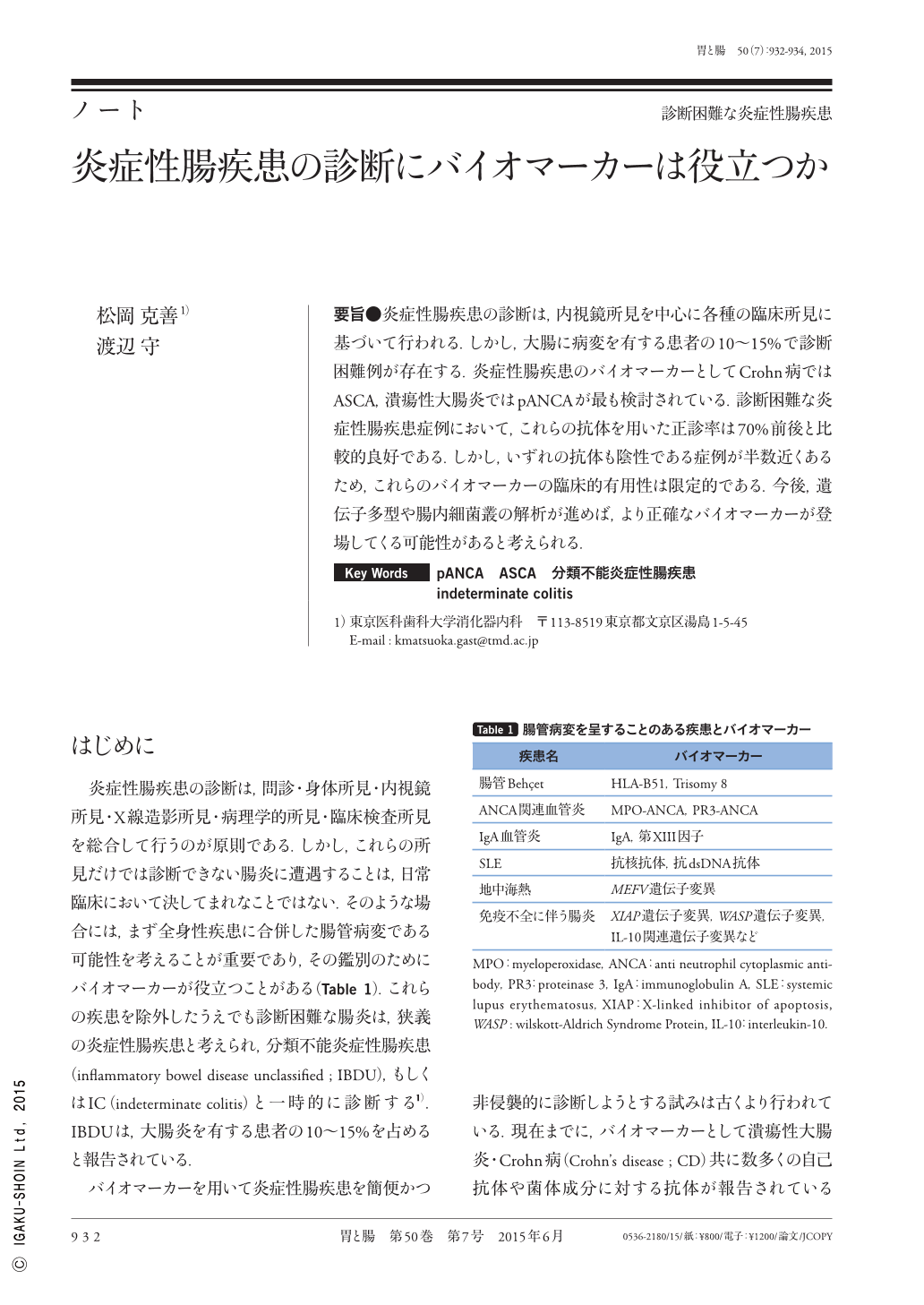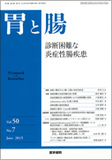Japanese
English
- 有料閲覧
- Abstract 文献概要
- 1ページ目 Look Inside
- 参考文献 Reference
要旨●炎症性腸疾患の診断は,内視鏡所見を中心に各種の臨床所見に基づいて行われる.しかし,大腸に病変を有する患者の10〜15%で診断困難例が存在する.炎症性腸疾患のバイオマーカーとしてCrohn病ではASCA,潰瘍性大腸炎ではpANCAが最も検討されている.診断困難な炎症性腸疾患症例において,これらの抗体を用いた正診率は70%前後と比較的良好である.しかし,いずれの抗体も陰性である症例が半数近くあるため,これらのバイオマーカーの臨床的有用性は限定的である.今後,遺伝子多型や腸内細菌叢の解析が進めば,より正確なバイオマーカーが登場してくる可能性があると考えられる.
The diagnosis of IBD (inflammatory bowel disease)is made based on endoscopic as well as various clinical findings. But, it is difficult to make a definite diagnosis in 10〜15% of patients with colonic inflammation. The most widely evaluated biomarkers are pANCA and ASCA for ulcerative colitis and Crohn's disease, respectively. The diagnostic accuracy of the combination of these antibodies is close to 70% in patients with IBD unclassified, while the prevalence of either antibody is approximately 50%. Thus, the clinical utility of those biomarkers is limited in current clinical practice. Progress on identification of disease susceptibility genes and analysis of gut microbiota may lead to the development of more accurate biomarkers in the diagnosis of IBD.

Copyright © 2015, Igaku-Shoin Ltd. All rights reserved.


